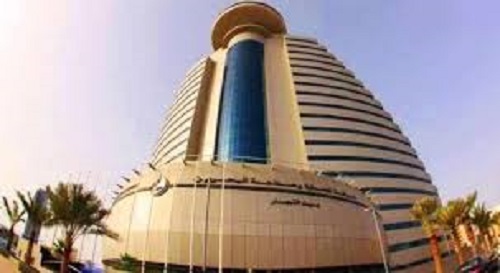MANAMA: Mahmood Rafique, Editor: With surge in use of internet and online activities due to pandemic, there has been an increase of 77% in Cyber Crimes in 1H 2020 Compared to 1H 2019.
In a latest report titled “Overview of the Impact of the Coronavirus Pandemic in 2021” released by the Bahrain Chamber of Commerce and Industry (BCCI) noted that the number of online fraud reports received by the General Directorate of Anti-Corruption and Economic and Electronic Security at MoI increased by 77% during H1 2020 compared to H1 2019.
The increase in cybercrimes is due to several reasons, including the tendency of many citizens to shop online, increasing digitization among businesses, and a greater reliance on online portals and the Internet to conduct payments, which increases the chances of fraud crimes through the Internet.
The value of real estate trading transactions decreased by 11% to BD716million by the end of 2020 compared to BD805million in 2019.
The data indicated that the real estate sector has been one the badly affected sectors due to the pandemic.
Unemployment rate in the Kingdom of Bahrain reaches 4.9% in 2020. The Consumer Price Index (CPI) decreased by 3.6% in November 2020 compared to same month in 2019, and this decrease is due to a number of reasons, most notably the prices of goods and services related to recreation and culture decreased by 43.1%, followed by clothes and shoes by 11.9%, and restaurants/hotels by 8.9%.The prices of food and non-alcoholic beverages increased by 2.2%.
CPI is a measure that examines the weighted average prices of a basket of consumer goods and services and the changes that occur in the general level of prices, based on tracking all goods and services consumed within a particular country. The composition of this basket is supposed to reflect the structure of household consumption spending in that country.
The coronavirus pandemic resulted in major changes in the prices of goods and services locally. In February 2020, the recreation and culture goods and services prices declined by 43.1% in November 2020 compared to November 2019, and similarly the prices associated with restaurants and hotels declined by 8.9% during November 2020 compared to November 2019.
The Business Confidence Index (BCI) dipped -17.4 points from Q3 to Q4 of 2020, compared to 20.2 points during the same period in 2019. All sectors were negatively affected from Q3 to Q4 of 2020, and the accommodation and food services sector scored the lowest business confidence, reaching -45.3 points.
The volume of trade between the Kingdom of Bahrain and GCC countries was greatly affected due to the coronavirus pandemic from January to November 2020 compared to the same period in 2019. The volume of trade between Bahrain and UAE decreased by 21%, followed by a 15.4% decrease in trade with Kuwait. The volume of trade with KSA decreased slightly by about 1.2%, yet it increased with the Sultanate of Oman by 4.9%
The number of insured Bahrainis working in the private sector increased by 2.5% in Q2 of 2020 compared to Q2 of 2019. Their average monthly compensations increased by 0.9% to reach BD 763, which highlights the great support provided by the government financial package through the payment of the salaries of insured Bahrainis, which contributed to the preservation of Bahraini manpower in the private sector. The number of Bahrainis in the public sector decreased by 3%, while the number of non-Bahrainis in the private sector decreased by 5% on an annual basis
The number of foreigners working in most economic sectors decreased in 2020 compared to 2019. The overall decrease reached -12%, and the largest decrease occurred in the tourism, hospitality, and restaurant sector by -21
The volume of Bahraini foreign reserves decreased by 36% in October 2020 reaching BD 794.6 million compared to BD1243.5 million in January 2020. Foreign exchange reserves are the deposits and bonds of foreign currency that are held by central banks and monetary authorities. Countries rely on foreign reserves to maintain a constant price value and competitive export prices, to maintain liquidity in the event of a crisis, to provide confidence to investors, and to pay foreign debts. Central Bank of Bahrain data indicates that foreign labor transferred BD 517 million outside the Kingdom in H1 2020, compared to BD 597million in H1 2019. Worker remittances declined by about 13.4% on an annual basis
The role of financial transfers in alleviating poverty and promoting growth has grown in significance over the past decades. In 2019 alone, such financial flows were on a par with foreign direct investment and official development assistance (Government to Government).However, the coronavirus pandemic caused a severe setback. The latest World Bank forecasts concluded that transfers will decrease by 14% by the end of 2021, which is a slightly better outlook than the estimates published earlier during the pandemic, but both numbers reflect unprecedented declines. It is expected that all regions will witness a decline in transfers, and that Europe and Central Asia will record the largest decline. With such declines, the numbers of transfers of migrants and expats are likely to decline in 2020, which is a first in recent history, as the numbers of immigrants and new expats decrease and the numbers of returnees among them increase.



